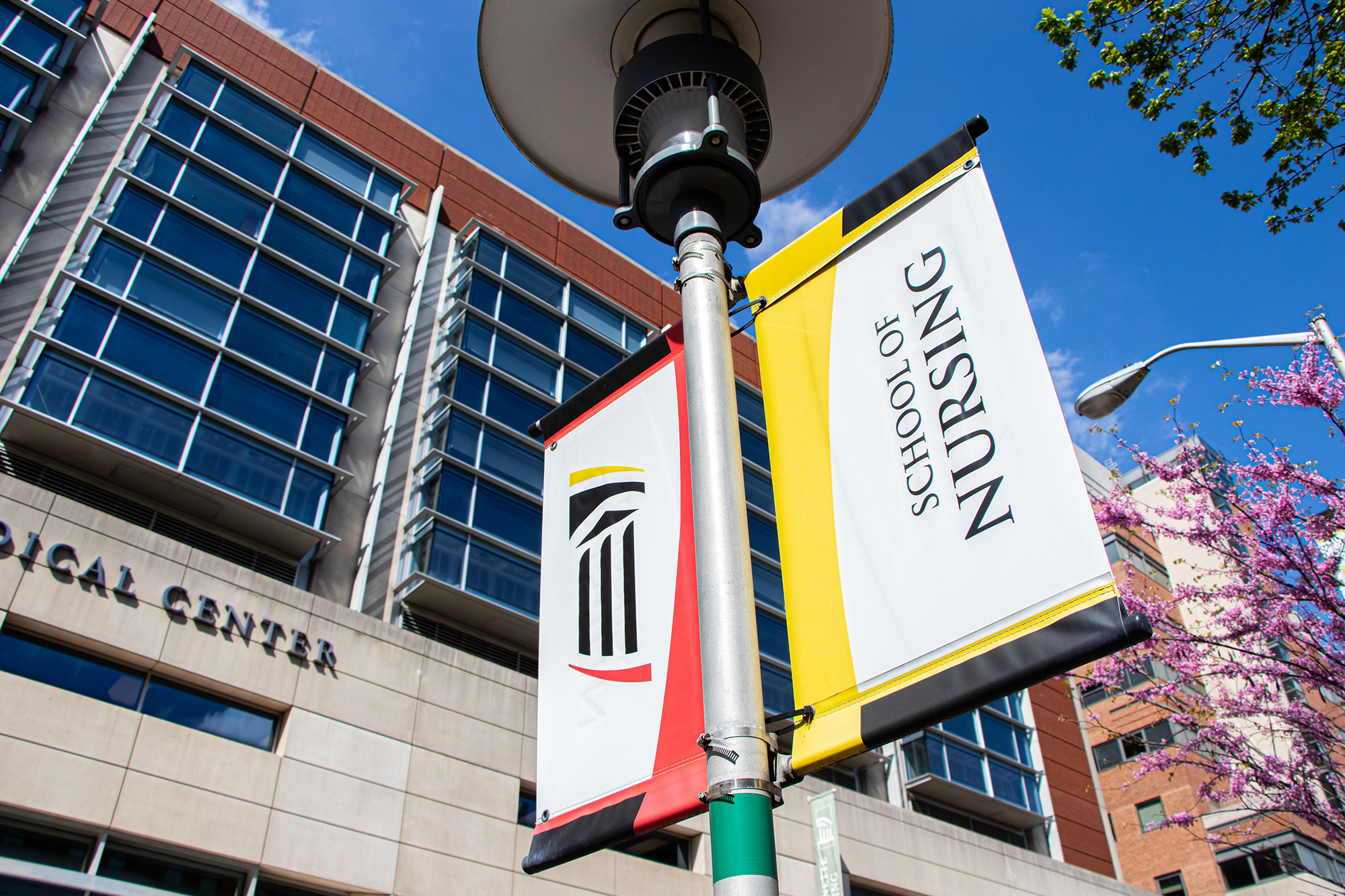As the coronavirus pandemic creates an excess demand for health care workers, hospitals and medical systems across the country are looking to a resource not used since World War II: nursing students.
And at the University of Maryland School of Nursing in Baltimore, qualified nursing students can join the frontlines as early as next week.
“They’re the people that everyone is looking to direct the care and to assess the situation, and they’re up to the task, they have the education, they ought to do that,” said Maeve Howett, associate dean for the baccalaureate program.
Last month, Maryland Gov. Larry Hogan announced that senior nursing students across the system would be able to enter the workforce before their graduation date to ease the load on health care professionals currently battling the pandemic. It’s an outcome Howett has anticipated for weeks, as she watched the virus spread from China to Italy to Spain.
At that point, she and her colleagues at the nursing school began discussing how they could prepare students to finish course requirements a month early — plans an official proclamation from the Maryland Department of Health put into action March 24, by invoking a state law that allows unlicensed nurses to practice during public health emergencies.
Last Friday, the nursing school sent an email to students eligible for an early graduation to gauge their interest. Bachelor’s students with a 3.3. GPA or higher, and master’s students in the Clinical Nurse Leader track with a minimum 3.0 GPA, were allowed to qualify.
So far, 58 undergraduate and 36 graduate students have signed up to complete their studies early, Howett said — over half of the students eligible.
“What we’ve heard from the students is a willingness to be a part of this, a true sense of being a part of the moment and trying to be a part of, hopefully, the lasting solution to fight this pandemic,” said Dr. Bimbola Akintade, associate dean of the nursing school’s master of science program.
[Read more: “Our central duty”: College Park service groups run errands for those in need]
Tiffany Heerd, a graduate student in the clinical nurse leader master’s program, has been working as a student nurse at Meritus Medical Center in Hagerstown since January. She knows firsthand how stressful caring for patients can be. But for herself and her peers who are electing to graduate earlier, the situation confronting them in the next few weeks will be very different than anything they’ve seen before, she said.
“I think that for all of us early exit people who are going into this pandemic, it’s going to be challenging, because it’s not status quo,” Heerd said. “But I feel like, what better time to be a nurse than when people need you the most?”
Heerd plans to finish her coursework in the next few weeks and begin a full-time position as a nurse graduate at the medical center soon after. Though she worries about how increasing her exposure to the coronavirus might affect her family’s health, she said she considers it an honor to be on the frontlines.
Many hospitals, including Heerd’s, will require students to go through an orientation process before being immersed in this “unprecedented situation,” Akintade said. University leaders are exploring ways to continue supporting this cohort of students after they graduate, he said.
In light of the toll that treating the virus is taking on health care professionals, the university is also alerting students on how to avoid burnout and practice self-care, Howett said.
“When you hear about students who are bravely going out when it’s a scary time, people are afraid of becoming infected themselves, they really are heroic,” she said. “They could go into many, many professions. And they choose a caring profession, because they touch human lives.”
With Maryland’s total number of coronavirus cases pushing 11,000, hospitals across the state are hiring a surge of health care workers — including nursing students — to keep up with the disease. Following Gov. Larry Hogan’s call in late March for 6,000 new hospital beds, the University of Maryland Medical System put together an “Emergency Staffing Pool.”
As the virus strains current medical capacities, new hires in the pool — medical professionals of different experience levels, including nursing graduates — can float across the system’s 16 member-hospitals to temporarily fulfill their needs.
The nursing school is also working with Holy Cross Health, MedStar Health and The Johns Hopkins Health System Corporation to get students into the field as quickly as possible, Howett said.
[Read more: Pregnancy in PG County: Women reflect on bringing new life to state COVID-19 epicenter]
Under typical circumstances, graduating nurses must complete 180 hours in the field, known as clinicals. In the wake of the coronavirus outbreak, the Maryland Board of Nursing has relaxed those requirements somewhat, allowing for students to make up more of those hours through online simulation training, Howett said.
In addition to these requirements, graduate nursing students must complete a 20-page dissertation to receive their master’s degree — a requirement that graduate school leadership has agreed to modify into an abstract and a poster, allowing students to complete it faster.
Although they will be able to immediately enter the workforce, students will still have to sit for a licensure exam in late May for their registered nurse certification.
Until then, their responsibilities will be somewhat limited. Nurse graduates can assess patients’ responses to medication and check their vital signs — though some activities must be performed under the supervision of a registered nurse, Howett said.
Even so, she says, putting more nurses on the frontlines is integral to combating the pandemic.
“I really recognize that nurses are the frontline of our response,” Howett said. “So having enough nurses to properly care for our population during a pandemic is absolutely essential to how we respond. We can’t do any of it without the nurses.”



